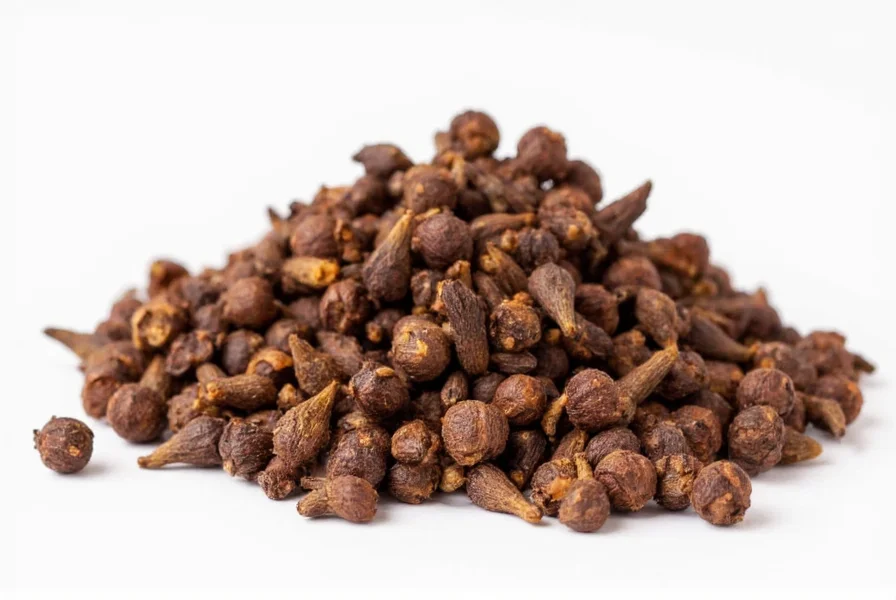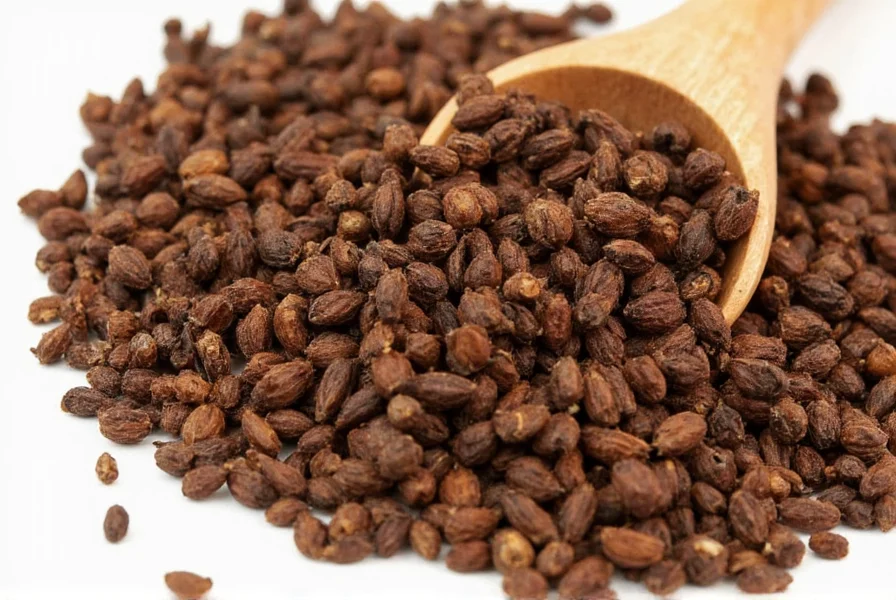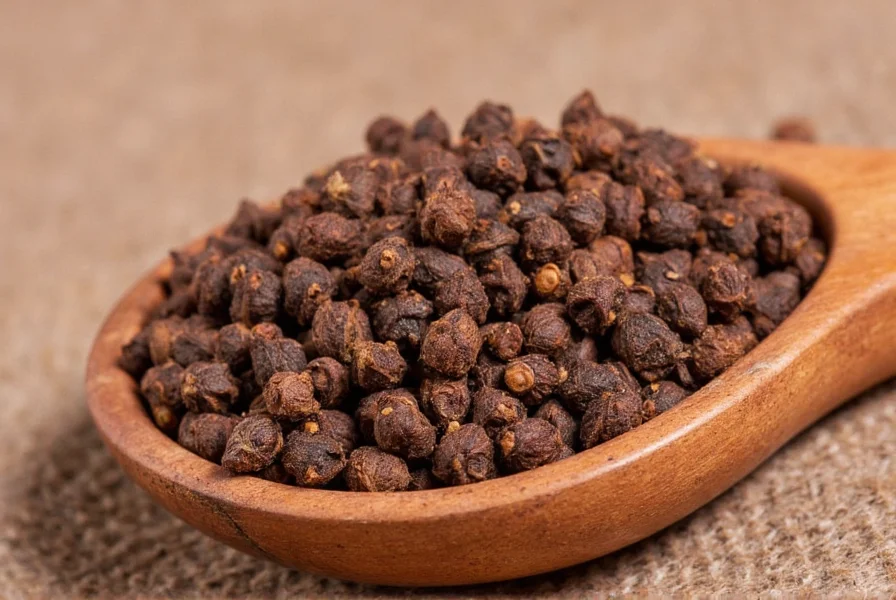Understanding the full potential of this ancient spice requires exploring its botanical origins, chemical composition, and versatile applications. Cloves aren't just holiday baking essentials—they're complex flavor agents with remarkable preservation properties and scientifically documented health benefits.
Botanical Background and Global Production
The Syzygium aromaticum tree, part of the Myrtaceae family, produces clove buds that begin as pale flowers, turn green, then develop their characteristic pink hue before harvest. Major producers include Indonesia (80% of global supply), Madagascar, Tanzania, and Sri Lanka. The highest quality cloves, known as clavus primus, feature long stems and high eugenol content.
| Top Clove Producing Countries | Annual Production (Metric Tons) | Distinctive Characteristics |
|---|---|---|
| Indonesia | 110,000 | Sweet aroma, medium pungency, balanced oil content |
| Madagascar | 15,000 | Higher eugenol concentration, more intense flavor |
| Tanzania | 10,000 | Robust flavor, preferred for extraction industries |
| Sri Lanka | 5,000 | Milder profile, often used in spice blends |
Chemical Composition and Flavor Science
The distinctive clove flavor profile stems from its complex chemical makeup. Beyond eugenol, cloves contain:
- Eugenyl acetate (15-20%) - contributes floral notes
- Beta-caryophyllene (5-12%) - adds woody, spicy undertones
- Alpha-humulene (1-3%) - provides earthy complexity
These compounds interact synergistically during cooking. When heated, eugenol's volatility increases, releasing maximum aroma at 176°F (80°C), making cloves particularly effective in simmered dishes. The spice's antimicrobial properties—documented in Journal of Agricultural and Food Chemistry studies—explain its historical use in food preservation.

Culinary Applications Across Global Cuisines
Clove's versatility spans multiple culinary traditions:
Asian Cuisine
In Indian cooking, cloves feature prominently in garam masala and biryani recipes. Chinese five-spice powder typically contains 20% clove. Indonesian kretek cigarettes famously blend tobacco with clove oil, though culinary applications dominate spice usage.
Middle Eastern and African Dishes
North African tagines often include whole cloves for slow infusion. In Persian cooking, cloves enhance rice dishes like tahdig. Ethiopian berbere spice mix incorporates ground cloves for depth.
Western Applications
European cuisines use cloves in pickling solutions, mulled wines, and baked goods. The classic French bouquet garni often includes cloves alongside bay leaves and thyme. For optimal flavor extraction in Western cooking techniques, add whole cloves early in slow-cooked dishes but introduce ground cloves near the end of preparation to preserve volatile compounds.
Scientifically Supported Health Benefits
Research published in Phytotherapy Research confirms several evidence-based benefits of clove spice:
- Dental applications: Eugenol's analgesic and antiseptic properties make clove oil effective for temporary toothache relief
- Antioxidant capacity: Cloves rank #1 among 26 common spices for ORAC (Oxygen Radical Absorbance Capacity) values
- Digestive support: Traditional Ayurvedic medicine uses cloves to stimulate digestive enzymes
- Blood sugar regulation: Animal studies show potential benefits for glucose metabolism
When incorporating cloves for health benefits, note that whole cloves retain potency longer than ground versions. A 2022 Nutrients journal review recommends 1-2 whole cloves daily (approximately 0.5-1g) as a safe consumption level for adults.
Practical Usage Guidelines
Mastering clove spice requires understanding proper handling techniques:
Selection and Storage
Choose cloves with intact stems and uniform brown color. Properly stored in airtight containers away from light, whole cloves maintain potency for 1-2 years, while ground cloves lose flavor within 6 months. Freezing extends shelf life significantly.
Substitution Ratios
When cloves aren't available, consider these evidence-based substitutions:
- Allspice (1:1 ratio) - closest flavor profile
- Nutmeg (½ clove = ¼ tsp nutmeg) - milder alternative
- Cinnamon (¼ tsp cinnamon per clove) - for sweet applications

Cooking Techniques
For even flavor distribution in liquid-based dishes, use whole cloves and remove before serving. In dry rubs or baked goods, grind cloves fresh using a dedicated spice grinder. When using cloves with acidic ingredients (like tomatoes), add them later in cooking to prevent bitterness from eugenol degradation.
Safety Considerations
While generally recognized as safe (GRAS) by the FDA, excessive clove consumption warrants caution. Consuming more than 2-3 grams daily of clove oil may cause liver toxicity, particularly in children. Individuals taking blood thinners should consult physicians before regular medicinal use, as eugenol may enhance anticoagulant effects. Always dilute clove oil for topical applications to prevent skin irritation.
Conclusion: Maximizing Clove Spice Potential
Understanding clove spice's botanical origins, chemical properties, and cultural applications transforms this humble bud from a simple holiday flavoring to a sophisticated culinary tool. By respecting its potency and leveraging its unique properties, home cooks and professional chefs alike can unlock new dimensions in flavor development while potentially gaining associated health benefits. The key lies in proper selection, storage, and application techniques that honor this ancient spice's remarkable complexity.
Frequently Asked Questions
What's the difference between whole cloves and ground cloves in cooking?
Whole cloves maintain their essential oils and flavor compounds longer than ground cloves, which lose potency rapidly after grinding. Whole cloves work best for slow-cooked dishes where they can be removed before serving, while ground cloves provide immediate flavor dispersion in baked goods and spice blends. For equivalent flavor, use 1 whole clove equals approximately ¼ teaspoon ground cloves.
Can clove spice help with toothache relief?
Yes, clove oil's eugenol content has documented analgesic and antiseptic properties. A 2021 review in BMC Oral Health confirmed that clove oil provides temporary toothache relief comparable to benzocaine. Apply one drop of diluted clove oil (mixed with carrier oil) to a cotton ball and place near the affected tooth for up to 20 minutes. Never apply undiluted clove oil directly to gums as it may cause tissue damage.
How should I store cloves to maintain freshness?
Store whole cloves in an airtight glass container away from light and heat. Properly stored, they maintain potency for 1-2 years. Ground cloves lose flavor within 6 months, so buy small quantities and consider freezing both forms to extend shelf life. Vacuum-sealed containers in the freezer can preserve clove quality for up to 3 years. Always check for strong aroma before use—diminished scent indicates reduced potency.
Are there any risks associated with consuming clove spice?
While culinary use is generally safe, excessive consumption (more than 2-3 grams of clove oil daily) may cause liver toxicity, particularly in children. Clove oil should never be given to infants. Individuals taking blood thinners should consult physicians before regular medicinal use, as eugenol may enhance anticoagulant effects. Always dilute clove oil for topical applications to prevent skin irritation, and discontinue use if any adverse reactions occur.
What are the best substitutes for cloves in recipes?
Allspice offers the closest flavor profile (use 1:1 ratio). For sweet dishes, cinnamon works well (¼ tsp cinnamon per clove). Nutmeg provides a milder alternative (½ clove = ¼ tsp nutmeg). In savory applications, a combination of cinnamon and allspice often yields the best results. Remember that substitutes won't replicate clove's unique chemical profile, so adjust quantities based on your taste preferences and the specific recipe requirements.











 浙公网安备
33010002000092号
浙公网安备
33010002000092号 浙B2-20120091-4
浙B2-20120091-4